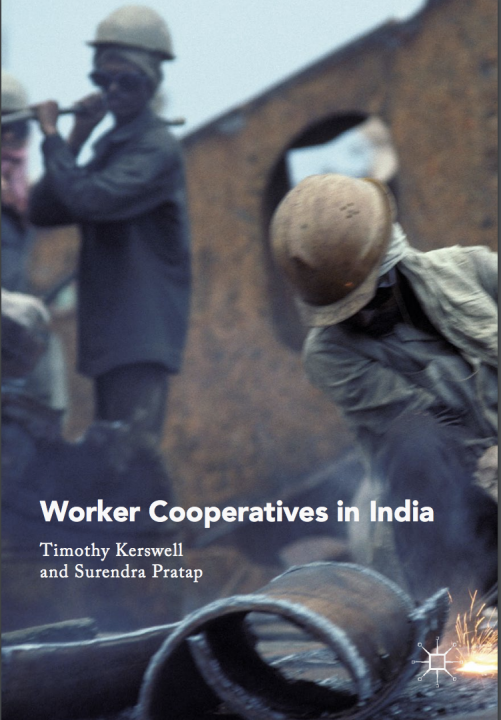By Timothy Kerswell and Surendra Pratap (Palgrave Macmillan, £70)
Worker Co-operatives in India is a look at the role of the trade union co-operative movement in India, particularly with regards to the informal economy, by Timothy Kerswell, assistant professor at the Department
of Government and Public Administration at the University of Macau, and Surendra Pratap, director of the Center for Workers Education in Delhi, India.
Together they explore whether the development of co-operatives or collective ways of working and living can transform politics and improve the lives of workers.
The book features case studies from different parts of the country, with Kerswell and Pratap highlighting that a common feature for all these ventures was their “unity of purpose”.
The book also examines the limitations of capitalism and the role of alternative economies and co-operatives.
“If, as is implied, the informal sector is a permanent new feature of the economy in India and elsewhere, it becomes hard to imagine progress for the working class,” the authors warn.
To research the book, Kerswell and Pratap went on field trips to sites across India in the summer of 2015, conducting interviews with over 200 workers, farmers, co-operatives, trade unionists and political leaders.
They are not afraid to take a critial line – identifying ideological, political or capital problems that can impact the success of co-operatives on the long-term. For example, they claim that pay and conditions for workers are weak in some co-operatives; and argue that the Self-Employed Women’s Association (SEWA) relies too much on donations; this means its transformative potential is limited because the co-operative is not self-sustainable, they say.
The book adopts the view that imperialism has yet to end and portrays UN organisations as a tool of imperialism. Yet, despite adopting a clear ideological stance, it raises critical questions about the successes and failures of co-operatives.
